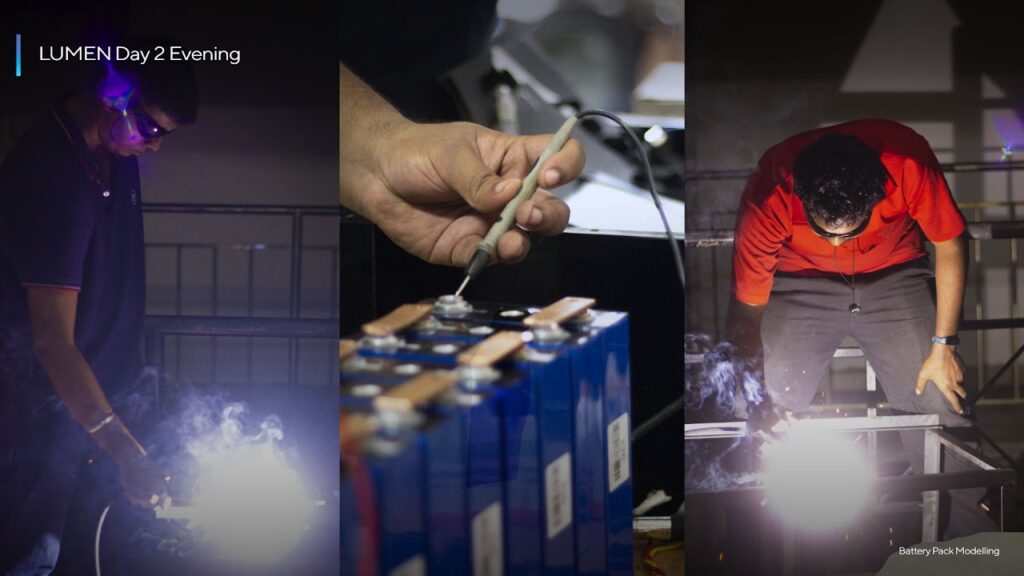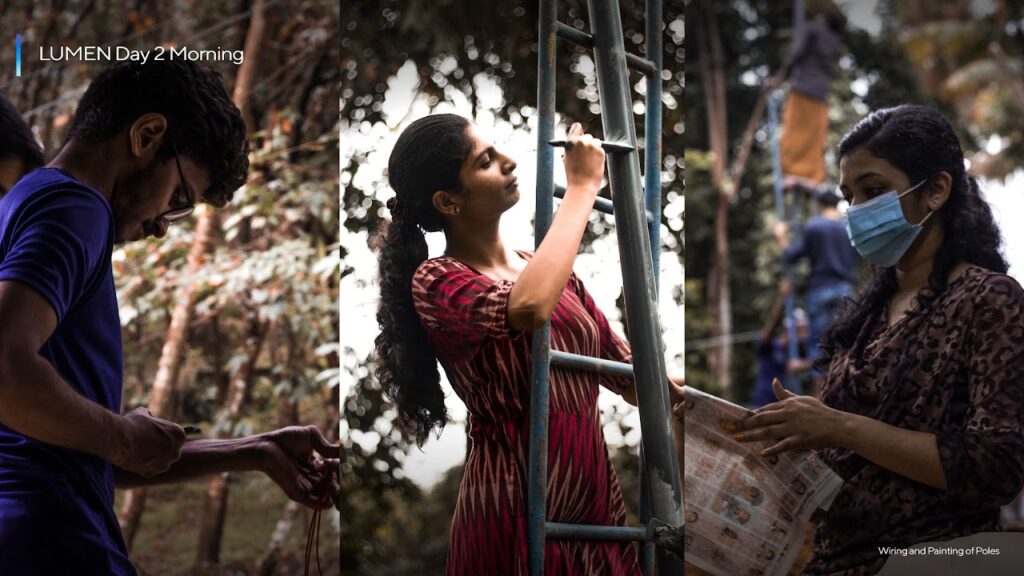The Lights for Uplifting Mankind Environment and Nature (LUMEN) EPICS in IEEE-funded project, developed a solar off-grid system powering street lamps in rural areas of Kerala, India, addressing the Sustainable Development Goal 7 (SDG7) for affordable and clean energy. The project involved an interdisciplinary team of young professionals and student members from IEEE Kerala Section, IEEE YP Kerala Section, IEEE Kerala Section SIGHT group, and IEEE Education Society Kerala Chapter, collaborating with the Avoli Grama Panchayat.
EPICS in IEEE spoke with team member Adithya Rajeev about her experience with the project. Rajeev is in her 4th year at the Kerala Technological University studying Electronics and Electrical Engineering. Rajeev reflected that not only did this project help develop engineering skills, but it also helped fuel her passion for solar power and giving back to a community in need. “As Engineers, it is our duty to use our skills and knowledge to help those in need.”

When asked about her favorite part of the project, Rajeev mentioned that she enjoyed working with the public and found them very hospitable to the students and volunteers who were working on the project. “This project has so many learning opportunities for us and gave us the ability to implement a permanent solution to change lives in this community.”
Rajeev was one of many students who participated in this project. The IEEE Kerala Section volunteers used a comprehensive approach to train the students including online and offline workshops focusing on solar energy, battery technology, and electrical system design. This helped ensure students like Rajeev learned about the technology and felt well-equipped for the installation in the community. Furthermore, participants in these workshops gained practical experience through hands-on training sessions in Lithium Battery Pack Modelling and bus bar designing.
Rajeev stated, “Our mentors from the IEEE Kerala section Abhinav R, Swathi Chandra, Navaneeth M, Abhiraj VS, and Anson taught us so much, not only about engineering but about problem-solving, logical decision-making, and most importantly safety. We as students had a huge appreciation for these training sessions because we were lacking in practical experience with this real-world problem.”
After the teams were trained, the project’s implementation spanned three days, including the development of the power conditioning unit, battery enclosure, solar panel installation, and street light installation, all of which culminated in a hybrid inauguration event. Despite challenges such as adverse weather conditions, the LUMEN project was successfully commissioned on July 26th, 2022.
When asked what challenges the team faced, Rajeev commented that they had the opportunity when on-site to brainstorm where the poles should be placed for the best lighting for the community. In addition, they had some community members who were concerned about the location of the polls, and the team needed to consider their feedback and make quick decisions. The project’s final report mentioned that during the project, heavy downpours caused water logging in the line and a 45-hour system downtime. The team’s quick decision to replace junction boxes with waterproof IP-protected terminal boxes, despite additional working hours, demonstrated adaptability and commitment to problem-solving. This experience significantly contributed to personal development and emphasized the importance of resilience in overcoming challenges for those involved in the project.
This project provided a reliable and sustainable source of lighting for the community and enhanced the safety and well-being of the community members. The community’s reaction to the project was positive, as evidenced by the successful inauguration event attended by local representatives and residents of the colony. The collaboration between IEEE volunteers, student members, and the local community played a vital role in the project’s success. Involvement from local authorities, such as the Avoli Grama Panchayat, helped to facilitate the project and secure its relevance to the community’s needs.
Project lead Harigovind Mohandas commented that “As the project lead for LUMEN, I’ve witnessed the transformative power of engineering when directed towards social good. Bringing light to rural communities not only brightened their lives but also inspired our young volunteers to embrace their roles in shaping a more sustainable and equitable world.”

Rajeev remarked, “I would encourage other students to apply for EPICS in IEEE projects, the peer-to-peer learning was very important.” The project was extremely beneficial and she will be continuing to use her engineering skills to give back to her community.
Thanks to our generous donors through the IEEE Foundation, EPICS in IEEE is able to provide funding for projects such as LUMEN that are inspiring young engineers. The EPICS in IEEE Committee is proud to have funded a project that not only helped the students involved get a hands-on learning experience but also brought together several IEEE groups to make a long-lasting impact on this community.

Recent Comments